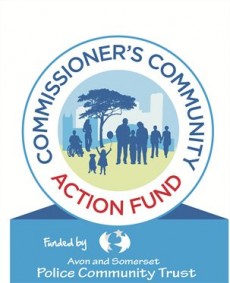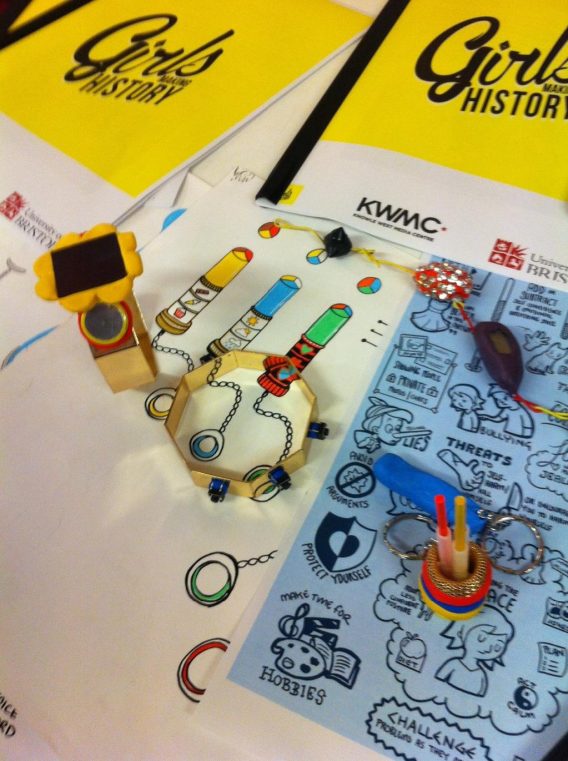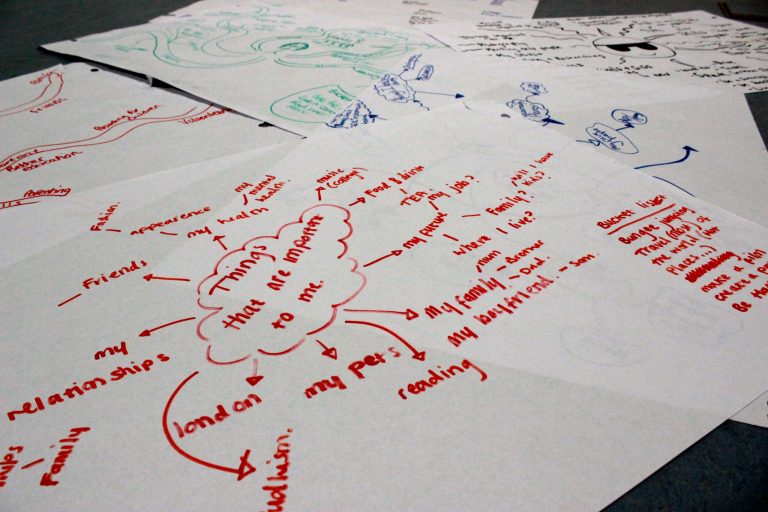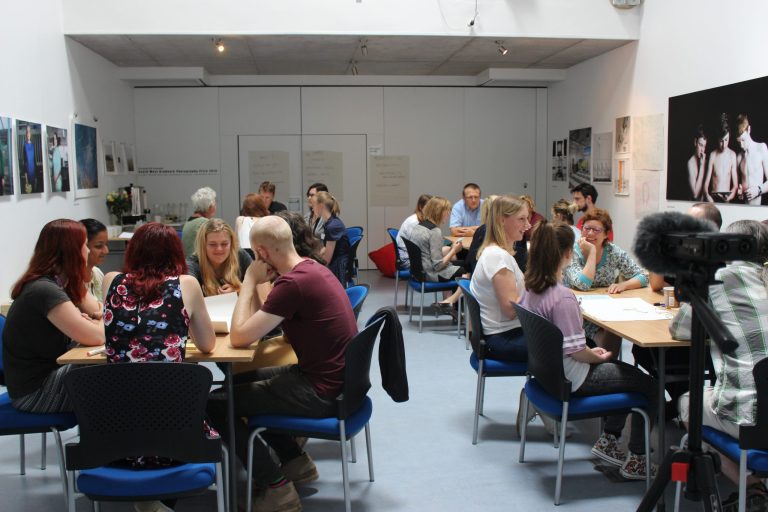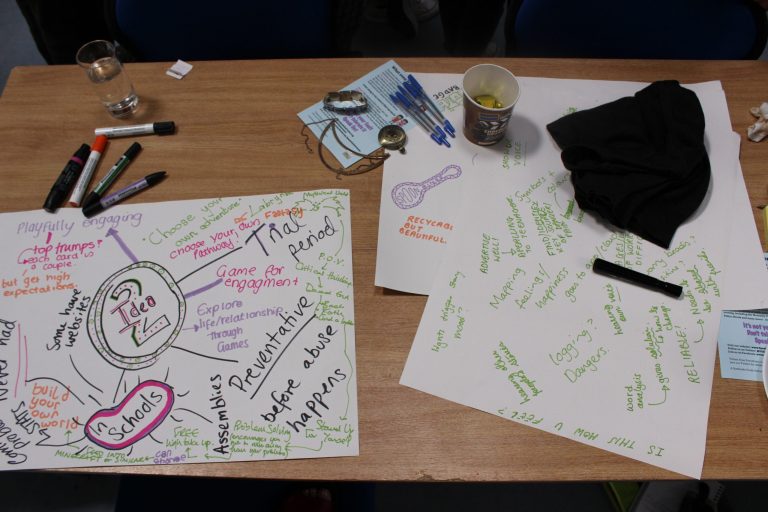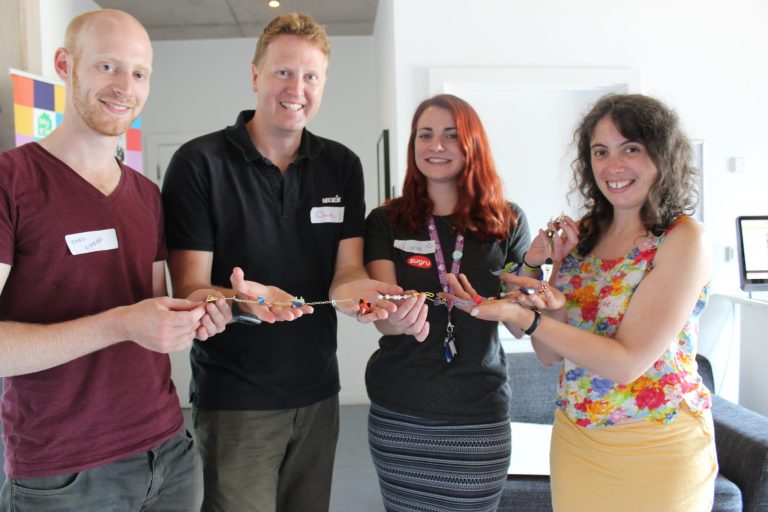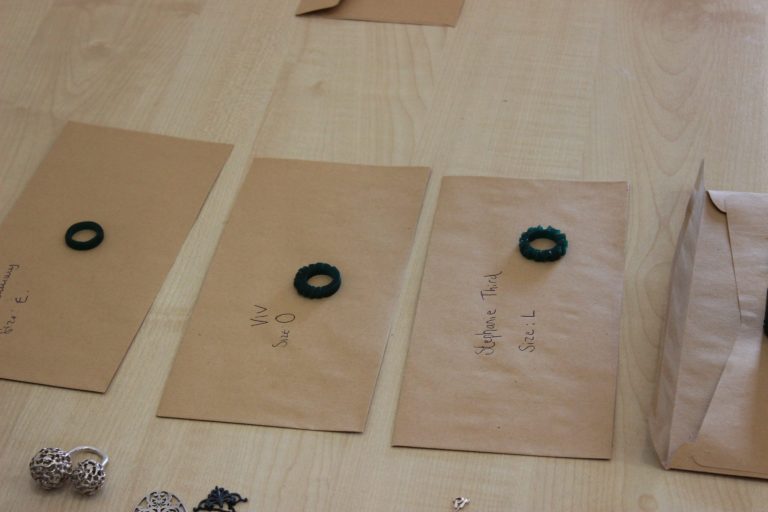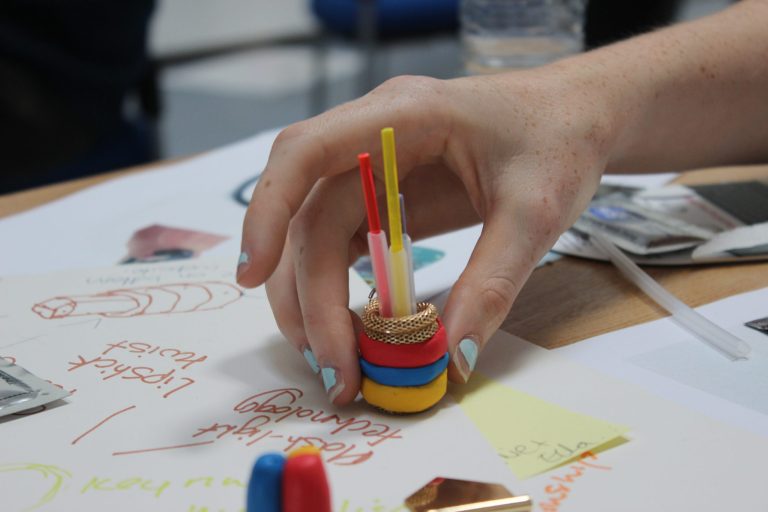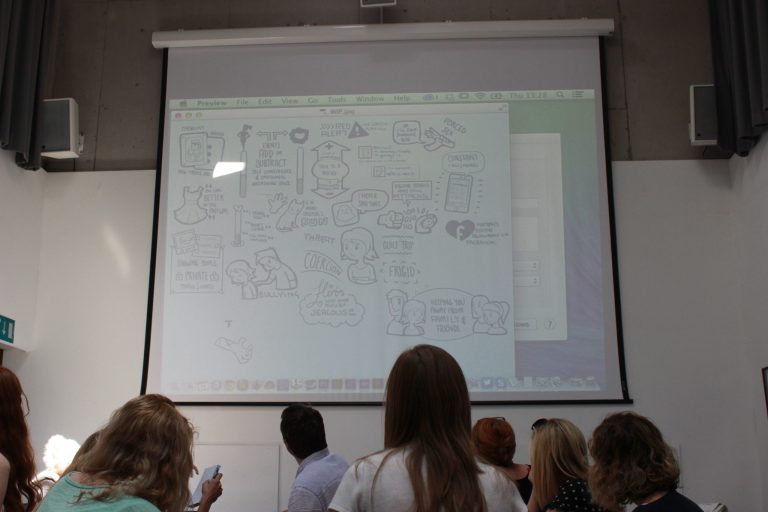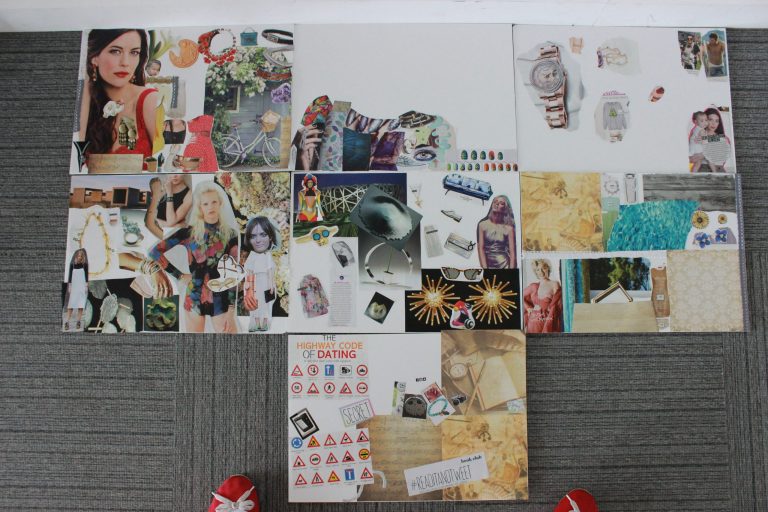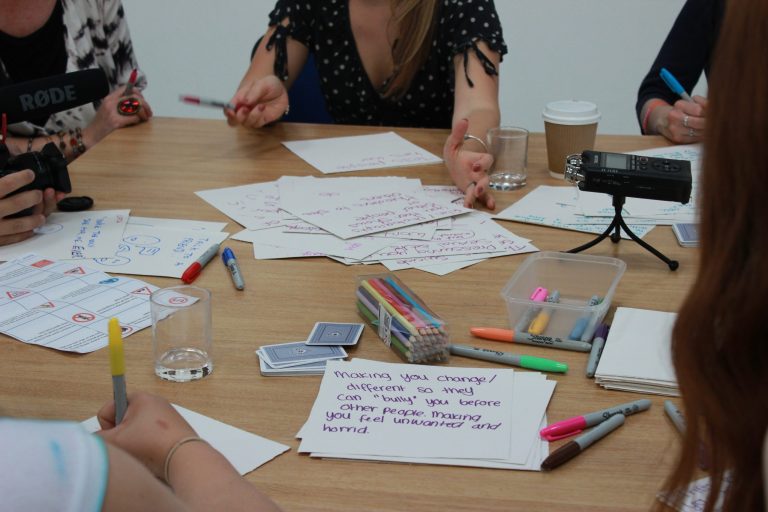Supporting young women into technology and challenging the normalisation of abuse in teen relationships.
Girls Making History was a 2014 research project that supported young women to explore technology and related careers, whilst tackling issues that affected them [1].
Knowing The Signs
The number of domestic violent relationships in young people is alarmingly high – and a recent report found 1 in 2 women in Britain have been physically or sexually assaulted. Almost 1 in 3 girls experience unwanted sexual touching at school.[2]
Knowing the Signs focuses on creating technology that can be used to raise awareness of the cultural normalisation of partner violence in teenage relationships and social networks. We collaborated with University of Bristol, organisations and experts from across the city to support young women to develop digital prototypes that could potentially support teenage girls at risk of, or already in the early stages of, abusive relationships. The young women had all experienced violence or coercive control in their relationships.
The fifteen young women aged 13 – 24 wanted to encourage other young people to recognise when relationships become unhealthy. Working with artists, creative technologists and engineers they have co-designed prototyped a game and a piece of ‘wearable technology’. The wearable also works as a safety device and will link to an app that highlights unhealthy behaviours and support mechanisms, enabling young people to recognise the signs and take action to make positive changes in their lives.
A final report is now available.
Girls’ Coding Sessions
In 2014, statistics showed that only 17% of the technology workforce was female and the figure was decreasing by 0.5% each year. In December 2015 we ran some free coding sessions for girls, where they could learn more about coding and building their own websites, apps and programmes.
Chloe, 13, attended a Control-Alt-Delete coding sessions aimed specifically at young women; she said: “My brother codes and told me that I wouldn’t be able to do it, but I can!”
[2] Sources: UK Feminista and the FRA
Gallery
- Our Design Challenge Workshop
- Brainstorming ideas for wearable tech
- Presenting our ideas
- Desirable Jewellery Workshop
- What our wearable tech could look like
- Artist illustrates our conversations as we talk
- Our desirable jewellery mood boards
- Coming up with ideas for the healthy relationships game
Funders
